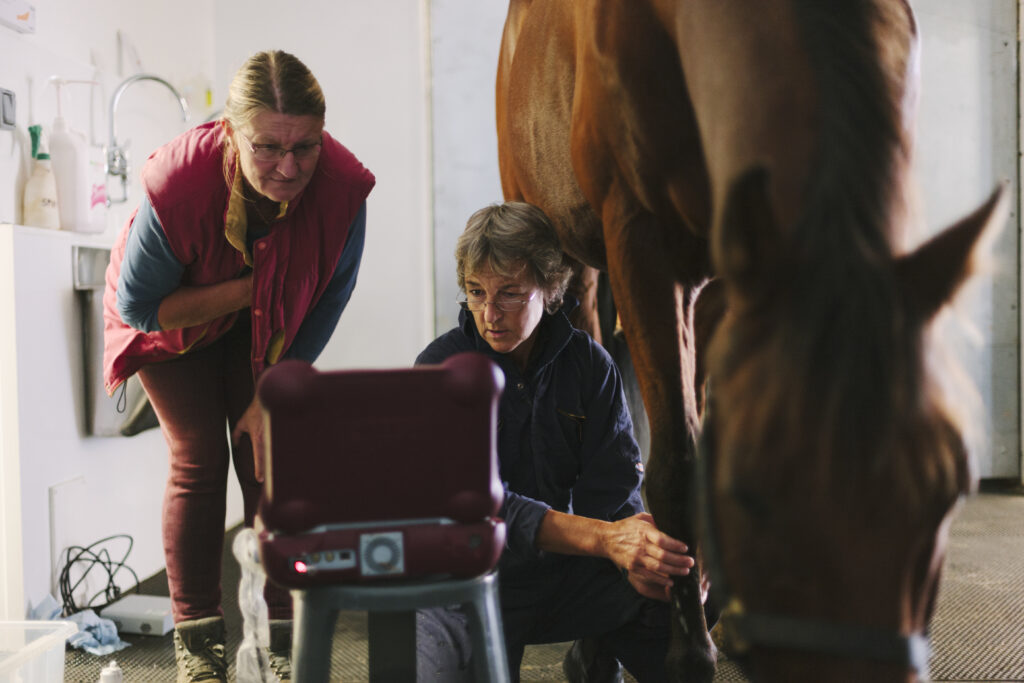
Communicating with clients during an emergency situation requires leadership. Often, emotions are high as clients might be worried about a number of issues: Is my horse going to die? What’s all this going to cost? Will he ever be rideable again? Is he suffering? Is this my fault? With all of this chatter inside their heads, some clients will have trouble attending to your words. It helps to make eye contact, slow the cadence of your speech and say their names. “Betsy! Look at me for a moment. I know you are very worried about Blaze, and I need you to listen carefully so you understand what we need to do to help him.”
Utilizing the four essential elements of good communication can help. They are non-verbal communication, open-ended questions, reflective listening and empathy.
Non-verbal communication makes up 80-90% of what we understand from others. The tone and volume of a person’s voice, the positioning of their arms and hands, their posture, and their degree of eye contact tells the listener a lot about their state of mind. When the words that are spoken don’t match the non-verbal signals, the results can be disharmony and a lack of trust. If the veterinarian says in a shaky voice with shaking hands, “Everything is going to be fine,” there’s a good chance the client won’t believe it.
Noting the horse owner’s non-verbal communication signals can also help you tailor your communication to be more effective. An angry man with crossed arms that is arguing about your diagnosis or treatment plan might need empathy and an opportunity to ask questions. “Tom, I know Coyote’s fractured coffin bone is not what you expected, and how disappointed you must be about missing finals. What questions can I answer for you?” might be a good approach.
When getting a history, open-ended questions can allow you to receive more useful information than those that just require a “yes” or “no” answer. Use questions like “What made you concerned about Blackie tonight?” or “How do you think the accident happened?” It might be best to avoid using “why” because this question can cause defensiveness and guilt, as it might seem to assign blame.
To prevent you from making wrong assumptions, use reflective listening.
“So, you saw Trigger get his leg caught in the bucket right before he became lame … is that right?” “Oh no, Doc! I didn’t see him, but the bucket was torn off the fence, and he’s lame, so that must be what happened, right?”
When you repeat what you heard in your own words and ask for clarification, it can be amazing what the owner missed telling you or what you misinterpreted. You can begin these statements with “What I hear you saying is…” or “Do I understand correctly that…”
Communicating with empathy is perhaps the most important piece in an emergency situation. It really means speaking to the emotions aroused by an unexpected, perhaps frightening, event. Showing empathy doesn’t take much time, and it significantly increases rapport and client satisfaction. Statements that acknowledge the difficult emotions can validate the client’s unease and help him or her feel heard. “I can see how much you care about Pumpkin. Have you had her a long time?”
Some of the best communication recommendations come from familiar words of advice: “People don’t care how much you know until they know how much you care” and “People don’t always remember what you said, but they always remember how you made them feel.”








